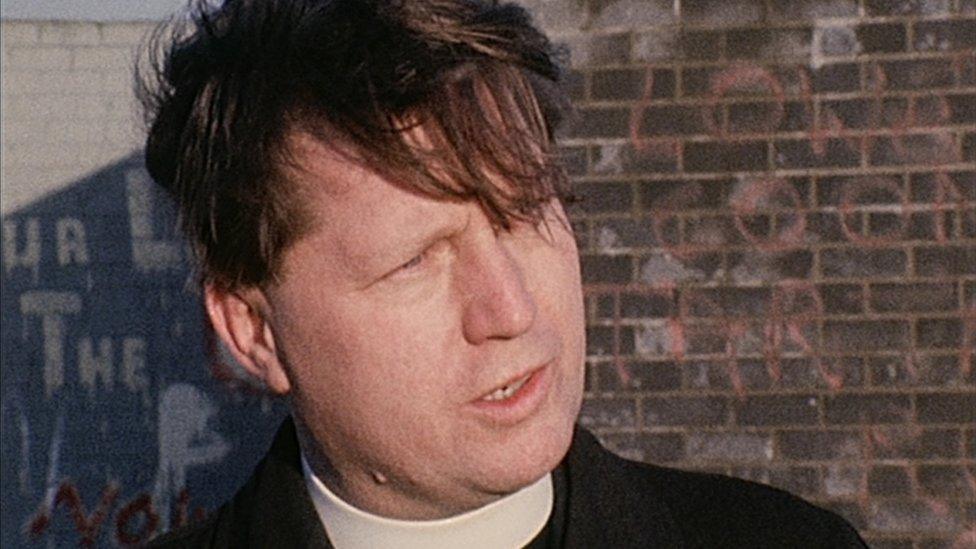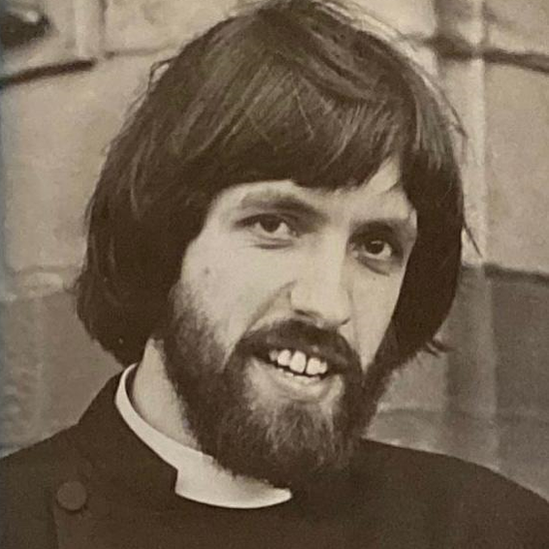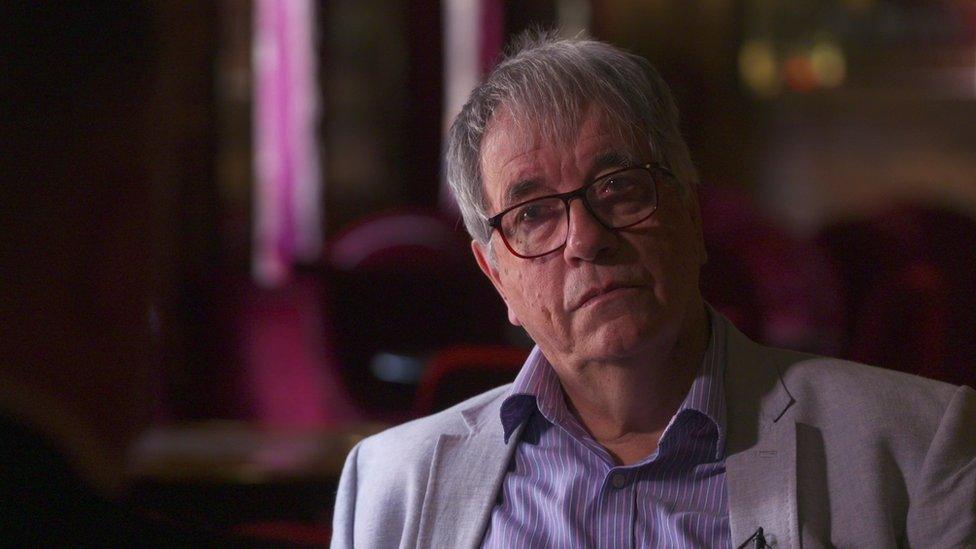Mount Merrion minister moved in 1976 after abuse allegations
- Published

Canon Billy Neely was a minister at Mount Merrion Parish Church in the 1970s
A Church of Ireland minister in east Belfast transferred to a rural parish in the Republic after child sex abuse allegations were made about him in the 1970s, a BBC investigation has found.
Billy Neely was also a scout leader and was banned from the organisation after he moved to Tipperary in 1976.
Canon Jonathan Barry said complaints were made to a bishop and believes the move was connected to the allegations.
The Church of Ireland said it could not comment because of legal proceedings.
Canon Billy Neely served in Mount Merrion parish on the edge of the Cregagh estate for a decade before his move to Kilcooley Parish in Tipperary.
As well as his clerical duties at Mount Merrion he led a scout troop in the local hall.
He was considered a high flyer in the church, promoted to canon at a relatively young age.
But Jonathan Barry, then a young minister at a neighbouring Church of Ireland parish, said he received disturbing allegations about Billy Neely in late 1975.
"There was a funeral that morning in St Mark's, Dundela," he recalled.
"Two ladies took me to one side and spoke to me, making an allegation about Billy Neely in Mount Merrion, their rector.
"It was a mother and a grandmother and they made specific allegations concerning the way he was behaving in general, but in particular towards their son and grandson; that he was beating small boys for sexual gratification."

Canon Jonathan Barry, seen here in the 1970s, heard allegations about Billy Neely and urged those affected to report them
Canon Barry said he told the women to go to the police and to then Bishop of Down and Dromore, George Quin, and later confirmed that they had spoken to the bishop about it.
"Bishop Quin took me to one side at a clerical meeting and to my great relief thanked me profusely for the way I had helped the family and my advice to them," he added.
The PSNI said it has no records of allegations made to the RUC in the 1970s.
But the BBC's investigation has uncovered evidence Bishop Quin took some action.
In a statement to the BBC, the Scout Association said it became aware in 1977 of "inappropriate behaviour" by Billy Neely which was confirmed by Bishop Quin.
The statement added: "In October 1977, we removed him from his role as volunteer leader. We also took action to ensure he could never re-join scouting. Since his removal from scouting 45 years ago and until his death, Neely never held another role with us."
But the BBC's investigation raises questions about what the Church of Ireland did about Billy Neely.
In 1976, he moved to the relatively small, rural parish in Tipperary, remote compared to the bustling parish of Mount Merrion, losing the rank of canon.

Speaking to the BBC, Canon Jonathan Barry said Billy Neely's continued access to children in Tipperary was "appalling"
Canon Barry said he believes the move was a result of the sexual abuse allegations.
"The two events were bound to be connected," he said.
"The fact that he just suddenly abandoned everything that he had going for him in the Diocese of Down was completely unexpected."
The BBC's investigation has also revealed that Billy Neely's ministry in Tipperary meant that despite being banned for life by the Scouts he continued to have access to children through his ministry - presiding over a Sunday school and visiting a local school.
According to Jonathan Barry, Billy Neely's continued access to children in Tipperary was "appalling".
He added: "There is much in the Church of Ireland that is absolutely delightful, wonderful, but today you have been talking to me about something that is utterly deplorable and cannot be defended."
Billy Neely returned to Northern Ireland in the 1980s, serving in the parish of Keady before once again reaching the rank of canon. He died in 2009 and is buried in the grounds of St Patrick's Church of Ireland Cathedral in Armagh.
In a statement the Church of Ireland said: "The deceased member of the clergy referred to is the subject of court proceedings. To prevent any prejudice to cases, no further statement shall be made on behalf of the Church of Ireland at the present time.
"Where someone has a child or adult safeguarding concern, they should report this to the statutory authorities. The Church of Ireland Safeguarding Officers are available to advise anyone with a safeguarding concern on the Church's safeguarding policies, including reporting procedures to the relevant statutory authorities."